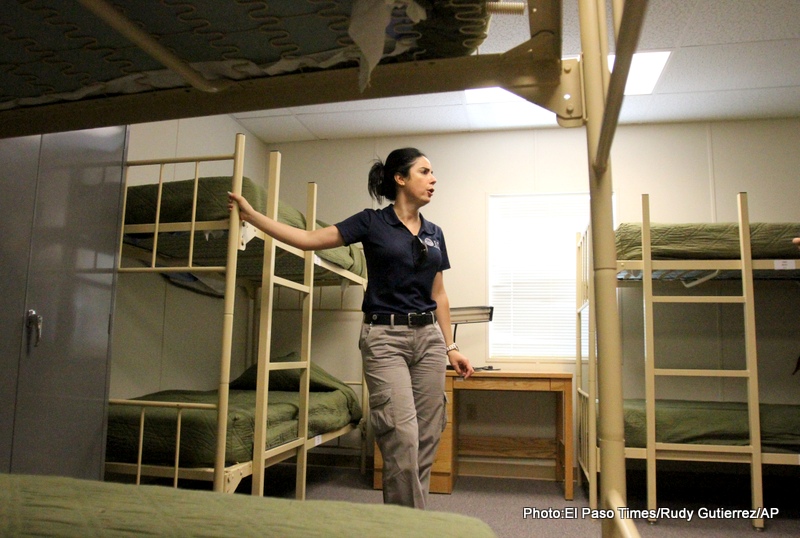
(ANTIMEDIA) Over 100 refugees who are being held at various U.S. detainment facilities have gone on a hunger strike over the thanksgiving weekend, calling for an end to their prolonged detention and mass deportations that have been taking place recently. When refugees enter the U.S., there is a rigorous screening process that they must go through, and many of them end up stuck in detention centers where they are held like prisoners for many months — and sometimes even years.
The hunger strikers demanded an end to all detentions and deportations and asked that those held longer than six months be released, even if it must be under supervision. They also asked for improved conditions in the center, with better access to medical care, food, and communication.
Paromita Shah, an Attorney with the National Lawyers Guild, said that prolonged detentions for refugees violates a policy called “Parole Directive,” which was established by the Department of Homeland Security.
“Under that protocol, if you pass what’s called a credible fear interview, which is an interview that happens when someone presents themselves at the U.S. border and requests asylum, there’s an interview that’s conducted by an asylum officer and they will either decide whether the person has passed the credible fear interview or not passed the credible fear interview. And in almost all these cases, they passed their credible fear interview. However, the policy directs that they should be released and that really has just been violated for several months now and no one is very clear as to why this is happening,” Shah said.
Other hunger strikes have been taking place in U.S. detention centers over the past several months, the most notably being back in October, when women at a Texas facility demanded their immediate release.
At the time, the hunger striker named Magdrola from Guatemala said in a statement that, “There are grave injustices being committed, detentions spanning eight months, 10 months, a year, a year and a half, so in the end we are being told we have no rights and will be deported, with offensive words and gestures that make us feel worthless.”
It is often mentioned in debates about immigration and refugees that these people somehow have it easy when they are crossing government borders, but this could not be further from the truth. Not only do people have to risk their lives to travel through the elements and through hostile environments, but they then end up getting treated like prisoners when they finally reach their destination.
Retaliation against #FreedomGiving hunger strikers has begun. Please make a call! @ICEgov @DHSgov pic.twitter.com/wiVHqoDt5Z
— DRUM #CeasefireNow (@DesisRisingUp) November 27, 2015

